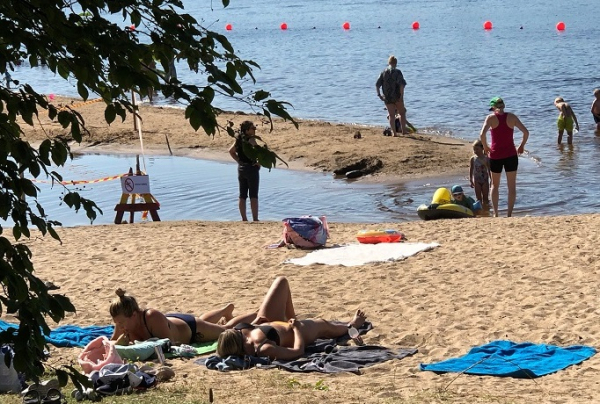
Summer 2024 was record-warm in Lapland, said the Finnish Meteorological Institute (FMI) in a press release on Monday.
The June-August mean temperature in Sodankylä Tähtelä, Finland was 15.9 °C, which broke the previous record from 1937 by 0.4 degrees.
According to a new study, published in npj Climate & Atmospheric Sciences journal, the summer was not only the warmest in the instrumental record, but the summer 2024 was very likely the warmest in 2,000 years, as estimated by indirect temperature observations.
The finding is based on temperature reconstructions derived from Scots pine tree rings.
The study, conducted by the Finnish Meteorological Institute and the Natural Resources Institute Finland (Luke), used two different reconstructions: one extending back 2,000 years and the other 1,170 years.
According to these reconstructions, the previously warmest summer occurred in 1937, which was now clearly surpassed based on direct measurements.
“Tree rings are dated with annual precision and they show a strong correlation with observed June–August temperatures, which allows meaningful comparison with present-day observations,” said Samuli Helama, senior scientist of Luke.
The new study also estimated the contribution of climate change to the mean temperatures in summer 2024 in Sodankylä, Finland. The findings indicate that the summer in Sodankylä was about 2.1 °C warmer due to anthropogenic climate change.
Without the observed global warming, such a warm summer would have been extremely rare, occurring only once in roughly 1,400 years.
Now, a similarly warm summer is expected to occur on average once every 16 years, making it about one hundred times more likely.
In addition to climate change, the study showed that atmospheric circulation, or the large-scale weather pattern, favoured the formation of the hottest summer on record.
“Thus, the summer would have been slightly warmer than normal even without the influence of climate change, but without the observed global warming, a new record would not have been set,” said Mika Rantanen, researcher of FMI.
As a result of the hot summer, Utsjoki, Finland recorded an unprecedented 25 hot days (with maximum temperatures exceeding 25 °C), and numerous wildfires blazed across areas including the islands of Lake Inari.
If global warming continues at roughly the current pace, by mid-21st century summers this warm could occur about once every four years.
By that time, global mean temperature is projected to have increased by approximately 2.1 °C, surpassing the 2 °C target set in the Paris Agreement.
Source: www.dailyfinland.fi


